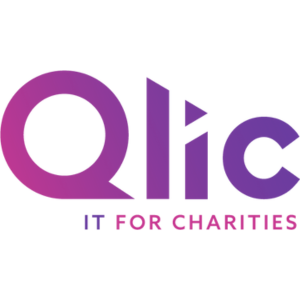Insights
INSIGHTS
All Topics
My Account
#BeMoreDigital Strategy Day: happening today
05 Jul 2021by Charity Digital
Our free #BeMoreDigital Strategy Day takes place on 8 July 2021 with a jam-packed schedule full of expert-led strategy sessions and interactive workshops
The demands of the past year are seemingly catching up with us. Charities have had to adapt to constant changes in daily operations, comply with ever-changing rules and regulations, adopt new platforms and remote and hybrid working models, and much more.
Charities have had to prioritise short-term solutions to deliver much-needed services. But, as the vaccine programme reaches full swing, and some sense of normality seems finally within touching distance, charities need to start thinking long-term. Charities of all shapes and sizes need to think about strategy, start prioritising preparedness, and plan for long-term success.
That’s why we are hosting the completely free #BeMoreDigital Strategy Day 2021. We believe it is time for charities to look beyond the confines of COVID-19. We believe it is time to think about the future. We believe it is time to focus on strategy.
The #BeMoreDigital Strategy Day will take place on Thursday 8 July 2021 between 09:00–13:30. The event will feature five brilliant expert-led sessions and three application-only interactive workshops, with virtual networking throughout the day on Remo.
The day is packed with exciting sessions and we have now confirmed the full agenda. The details of the sessions are explained below, so attendees can choose the sessions they would like to attend.
So sign up now, check out the workshops and the sessions, and we’ll see you on the day!
Workshops
We have a series of application-only workshops, which you can still join. The workshops begin at 13:30. Please apply as soon as possible, as spaces are filling up fast.
Cyber security threats facing higher-income charities
Larger charities are more likely to face cyber attacks. The reasons are perhaps obvious, as more prominent charities have more extensive pools of data and greater funds. For many charity leaders, it’s no longer enough to be aware of general threats. Leaders of larger charities need to know the specifics of each potential threat and have relevant risk strategies in place to prevent them.
Anthony Idowu, UK Technical Lead at F-Secure, and Etienne Greeff, CEO at Flow Communications, are here to provide support. In their interactive workshop and dedicated training session, the hosts will explain the precise threats higher-income charities face, explore key hygiene tips tailored to different organisations, and offer a case study that shows how a major charity streamlined their cyber security.
The workshop will also cover, among other things, exercises and guidance based on the experience of higher-income charities, a case study involving Save the Children, discussions with other participants around how they’re managing threats, and a Q&A session with workshop trainers to hash out any other pressing issues.
The workshop is sponsored by F-Secure. F-secure is a cloud-based business protection solution with easy and instant deployment from your browser. Their technology effectively combats ransomware, malware, data breaches, and other threats, and provides fully integrated patch management capability based on missing patches and a patching priority list.
Cyber security and digital strategy for smaller charities
Most charities remember the so-called essentials in their digital strategy. They remember goals, platforms, audience numbers, resources, and so on. But, unfortunately, many of them forget one of the most essential elements: cyber security.
Knowing how to mitigate cyber risks should be an essential part of any strategy, regardless of the shape and size of the charity, but it is particularly important for smaller organisations. Charity leaders need to ensure employees remain cyber secure and that cyber security is accounted for at every stage.
The interactive workshop, hosted by cyber security expert Michala Liavaag, aims to show attendees how to incorporate cyber risk management into the planning and execution of a digital strategy. Attendees can expect to learn key terms of cyber security risk management, how to review and revise processes, how to take account of changes in the landscape of the charity sector, and much more.
The workshop is aimed at small-to-medium-sized charities, particularly those working in leadership or trustee roles or any other role involved in strategic decision-making. The workshop would also appeal to people working in IT-based roles who wish to co-operate with leaders on digital strategy.
Using the Code to further your digital impact
The Charity Digital Skills Report found that 48% of the charities still want their CEO, board, or leadership team to develop a “clear vision of what digital could help them achieve”. They want more long-term thinking. They want more strategy. The Charity Digital Code of Practice can help.
Zoe Amar, Founder of Zoe Amar Digital, hosts this brilliant interactive workshop, which aims to teach attendees the principles of the Code to help them further develop digital impact. Zoe will be joined by Callum Metcalfe at Young Lives Vs Cancer to explain how the Code helps leaders to shape a vision for digital, change the culture of their charity, work with users to understand needs, and much more.
The workshop is aimed at charities of all shapes and sizes, but is aimed particularly at charity professionals working in leadership, trustee, or C-Suite roles. It will also appeal to anyone who is currently focussed on changing leadership and shaping a vision using the Code.
Sessions
We will have five expert-led sessions throughout the day, each offering insight on various elements of digital strategy. Check out the descriptions below and we hope to see you on 8 July 2021!
Small but mighty: digital strategy fundamentals for smaller charities
The session, delivered by Michael MacLennan, founder at COVID:AID, examines the best digital strategy options for smaller charities. The session takes attendees back to basics. Using his wealth of commercial experience, Michael will show attendees how charities can build a strategy from scratch, ensuring that it is realistic, ambitious, and puts the objectives of the charity at its heart.
Michael will also explain what smaller charities need to include in their digital strategy, how to develop the strategy as an evolving guide rather than a static document, how to set reasonable and realistic goals and expectations, how to measure success, and so much more.
The session should particularly appeal to small-to-medium-sized charities and people working in roles that might center around a digital strategy. The brilliant session will lean on the fundamentals, so worry not if you do not have an extensive digital know-how – the session is certainly for you!
Tools for change: creating a positive cyber security culture for your charity
The session, delivered by Becca K, Charity Lead at the National Cyber Security Centre (NCSC), explores the NCSC’s Board Toolkit, which has been created to encourage essential discussions about cyber security to take place between the Board and their technical experts.
Board members do need to know enough about cyber security to have a fluent conversation with experts and understand the right questions to ask. The session will give board members that knowledge, showing them the four questions that will generate productive conversations between the board and the technical team.
The session will also point to guidance from the Board Toolkit that attendees can take away and use to empower the Board to make educated decisions.
The session is sponsored by the NCSC. The NCSC work hard to protect the UK from cyber attacks, manage major cyber incidents, and provide advice to citizens and organisations on how to keep themselves secure online. The NCSC support the most critical organisations in the UK, the wider public sector, industry, SMEs, as well as the general public. When incidents occur, the NCSC provide effective incident response to minimise harm to the UK, help with recovery, and learn lessons for the future.
How the British Red Cross achieve people-first change management
This session, delivered by Ross Pitbladdo, Technology Business Partner at British Red Cross (BRC), explores how charities can make long-term digital changes, ensuring that they always put people first. The session will highlight the BRC’s experience when they rolled out a recent digital project, which sought to introduce tablets to front line workers, and express learning from that experience.
The learnings include how the BRC used ‘Digital Champions’ to educate people from the very beginning, how charities can generally increase the wider adoption of tech, how charities can harness insight from their teams, how the BRC’s favoured model of change works in practice, and much more.
The session is aimed at charities of all sizes who want to learn how to put people at the forefront of their strategy. Attendees should come away with tangible learnings that they can put into practice.
How to prepare your charity for hybrid working
This session, hosted by Lucy Duszczak, Digital Marketing Manager at YHA, explores the concept of hybrid working in detail – and in practice. It explains that charity leaders must start to prepare their staff for hybrid working models and have a plan of action to accommodate for future needs.
Hybrid has become something of a buzzword, but it provides charities with an amazing opportunity to optimise their working environments. The session will explore how charities can harness the benefits of both the virtual and the physical and make them work together.
The session will also explore, among other things, the best ways to prepare your charity for a full hybrid working transition, the main challenges charities may face, garnering employee support and ensuring employee motivation, and so much more.
We’ll never work the same again...and why should we?
Matt Haworth, Founder at Reason Digital, hosts a panel with Matt James, Director of Communications and Engagement at WellChild; Suzanne Begley, Digital Transformation Specialist at Cruse Bereavement Care; Siad Dajani, Head of Digital at Diabetes UK and Stephanie Canavan, Associate Director Data and Digital Transformation & DPO at MSI Reproductive Choices UK.
The panel covers ideas of new working models, looking at the learnings from the past year that we can carry into the future. It is unlikely that the return to ‘normal’ will mean going back to pre-COVID-19 ways of working, but rather finding new models and new ideas that suit everyone. Part of that change, of course, is the adaptation of strategies to continue progress.
The panel will talk to leaders who will steer digital strategies in the future. Our panellists will likely discuss, among other things, plans for a future digital roadmap, strategies that bring together pre-COVID-19 and post-COVID-19 life, the increasing importance of hybrid models, the digital changes their charities have made, and so much more.
The session should appeal to leaders, helping them define their strategies in the upcoming months, but it may also appeal to anyone working at the forefront of charity digital transformation.
Sign up now!
Watch the sessions live and apply for our workshops!
More on this topic
Recommended Products
21 Feb 2025by Ioan Marc Jones
How charities stopped centring service users
20 Feb 2025by Laura Stanley
The simplest way to collect contactless donationsSponsored Article
Our Events
Charity Digital Academy
Our courses aim, in just three hours, to enhance soft skills and hard skills, boost your knowledge of finance and artificial intelligence, and supercharge your digital capabilities. Check out some of the incredible options by clicking here.














